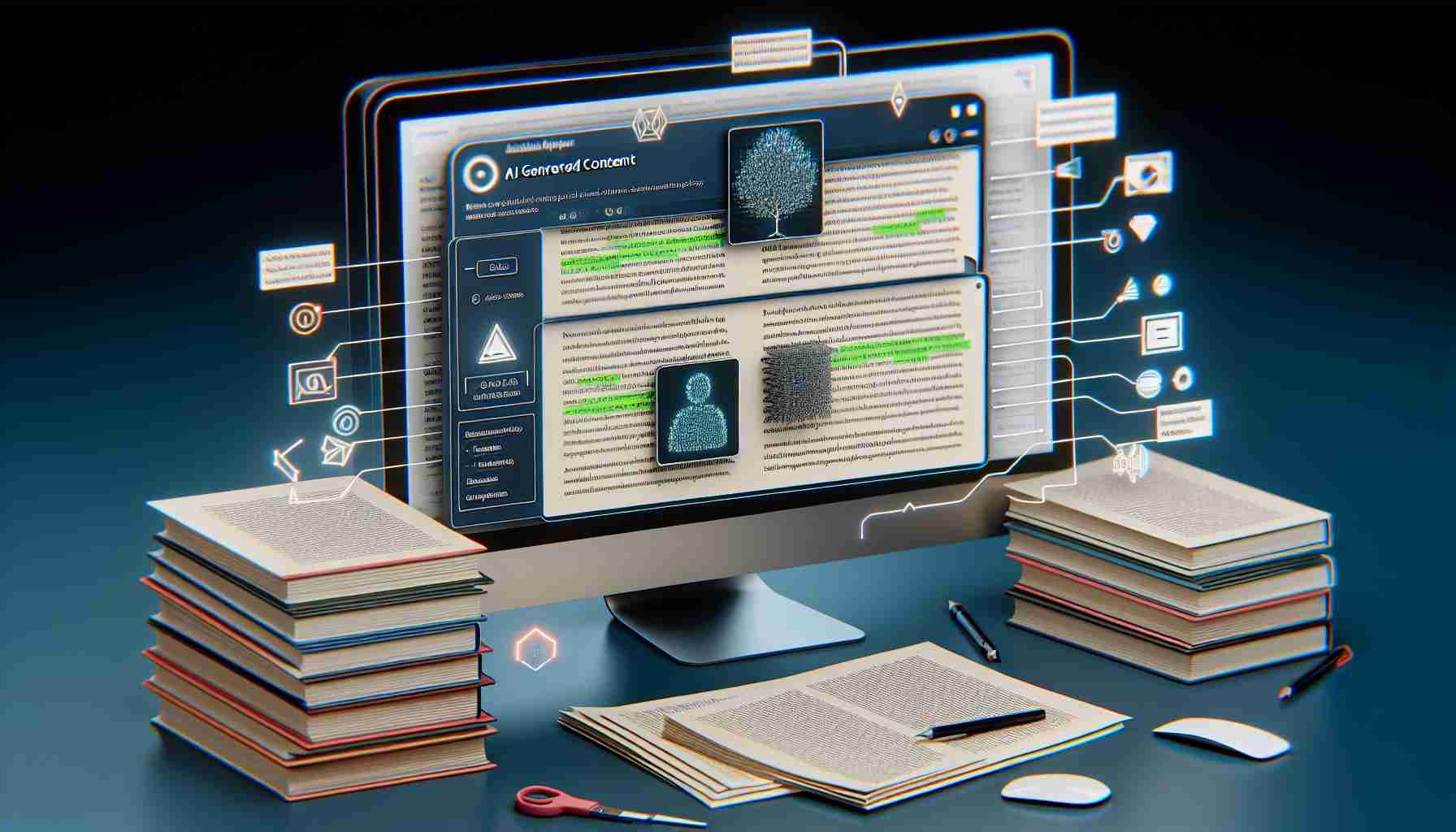An extensive study carried out by an essay submission platform alongside plagiarism detection service Turnitin has unveiled the extensive usage of generative artificial intelligence by students in their academic writings.
Turnitin’s AI detection tool, operational since April 2023, scanned through 200 million documents in its database and discovered that more than 22 million articles included a minimum of 20% AI-generated content. This figure equates to the work of roughly 11% of students. Even more striking is that approximately 6 million articles, representing around 3% of the total, were composed of at least 80% AI-generated content.
Remarking on the findings, Annie Chechitelli, the Chief Product Officer of Turnitin, emphasized the importance of independent work in academics. She noted that educational institutions must preserve their integrity. Chechitelli highlighted the significance of tools that aid educators and students alike, including plagiarism detection software powered by artificial intelligence capabilities.
The Turnitin report acknowledges that AI-generated content within academia is an escalating challenge that requires a multifaceted approach beyond mere identification. To tackle this issue, the company advocates for open dialogues with students regarding the acceptable use of AI, revisions of existing academic policies, and offering essay-writing guidelines.
While the percentage of students submitting computer-generated work is still relatively small, research by Tyton Partners indicates that almost half of the students routinely employ generative AI like ChatGPT, with three-quarters intending to continue despite restrictions imposed by educational institutions.
The academic integrity comes under scrutiny from educators when a paper surpasses 30% AI-generated content. Addressing the widespread use of AI in education poses several challenges and demands a comprehensive strategy to ensure academic integrity and the effective use of technology in learning environments.
Key Questions and Answers:
1. What is Turnitin’s AI detection tool, and how does it work?
Turnitin’s AI detection tool is a feature within the Turnitin software suite that is designed to identify content in submitted essays that may have been generated by artificial intelligence. It analyzes writing patterns, syntax, and other factors that can distinguish AI-generated text from human-written text.
2. Why is it important to detect AI-generated content in academic writing?
The detection of AI-generated content is crucial to maintain academic integrity. It ensures that students are evaluated based on their ability to think critically, synthesize information, and express their unique perspectives, rather than on their proficiency in using AI tools to generate content.
3. What is the response of educational institutions to the usage of AI in student essays?
Educational institutions are revising their academic policies and developing strategies to address the use of AI in student work. They aim to cultivate a culture that values originality and fosters learning rather than penalizing technology usage.
Key Challenges and Controversies:
Academic Integrity: There is a concern that AI-generated content could undermine the foundational principles of academic work, which prizes originality and individual effort. Finding the balance between technology use and academic honesty is a growing challenge.
Technology Adaptation: As AI continues to evolve, keeping up with its capabilities poses a major challenge for plagiarism detection services. These tools must continually adapt to effectively identify AI-generated content.
Student Engagement: One argument against using AI in essay writing is that it could potentially discourage students from engaging deeply with the subject matter and from developing essential academic skills.
Advantages and Disadvantages:
Advantages:
– Education Quality: By detecting AI-generated content, educators can ensure students are learning and developing their writing skills.
– Academic Integrity: Turnitin’s tool helps maintain the integrity of academic qualifications by preventing false representation of abilities.
– Support for Educators: This technology provides a resource for instructors to address the use of AI in student work effectively.
Disadvantages:
– Potential for Overreliance: There might be a risk that both students and educators over-rely on detection tools, possibly neglecting the development of critical thinking and manual assessment skills.
– Legitimacy Concerns: It may be challenging to differentiate between AI assistance, which could be a legitimate study tool, and outright AI-generated work that breaches academic policies.
– False Positives: No detection system is perfect, and there is a potential for false positives that may wrongly accuse students of using AI-generated content.
For more information about Turnitin and its services, visit their official website at Turnitin.

